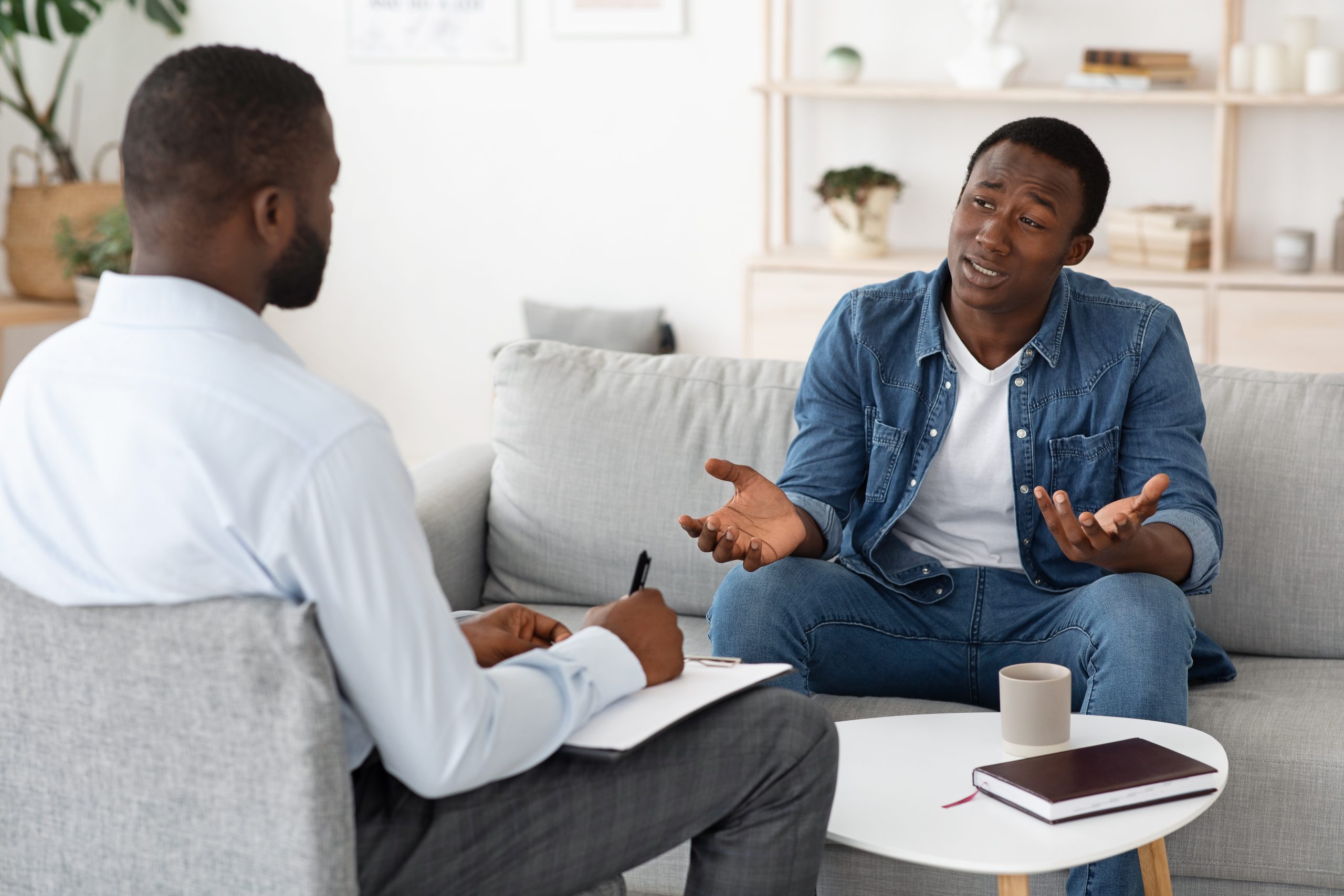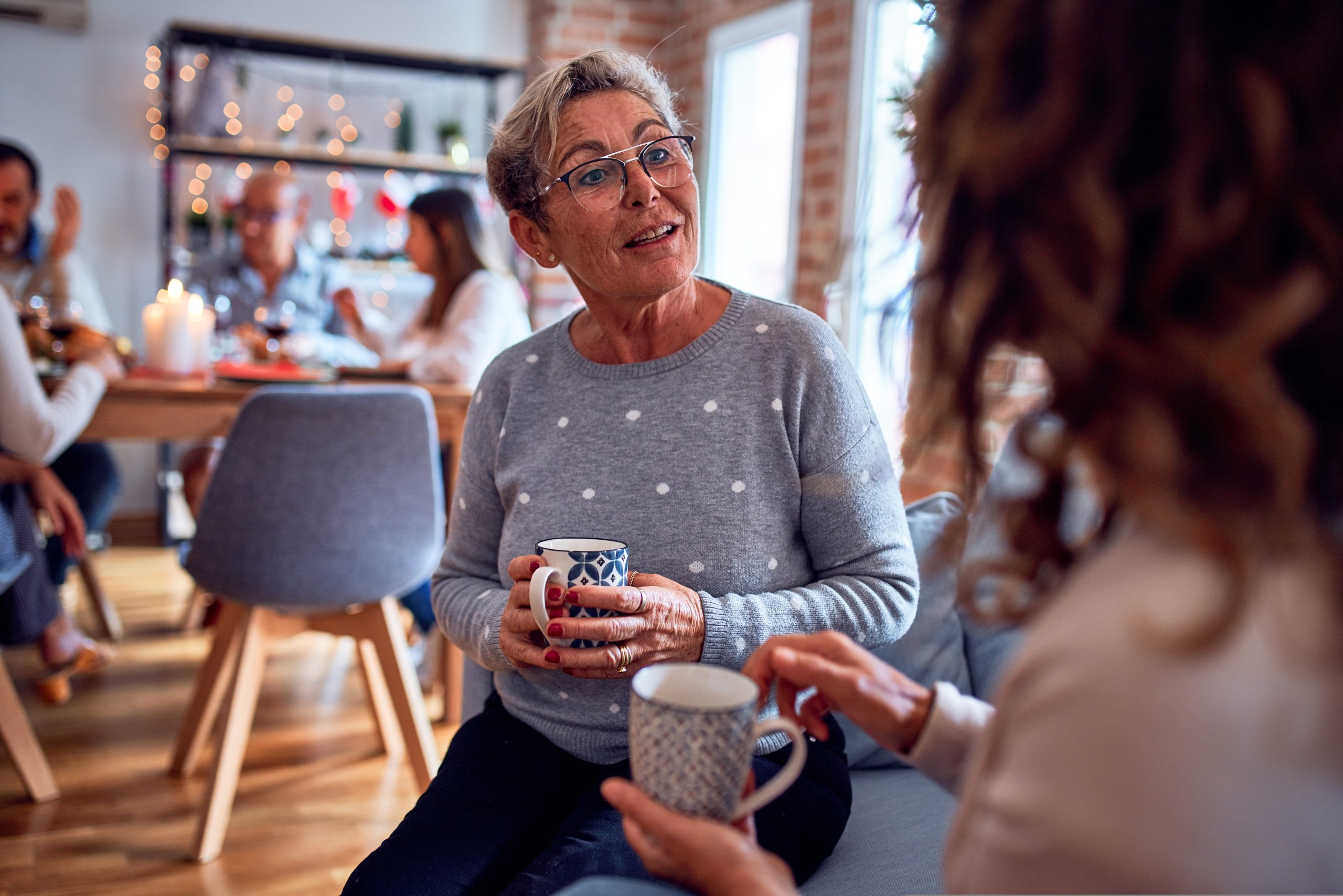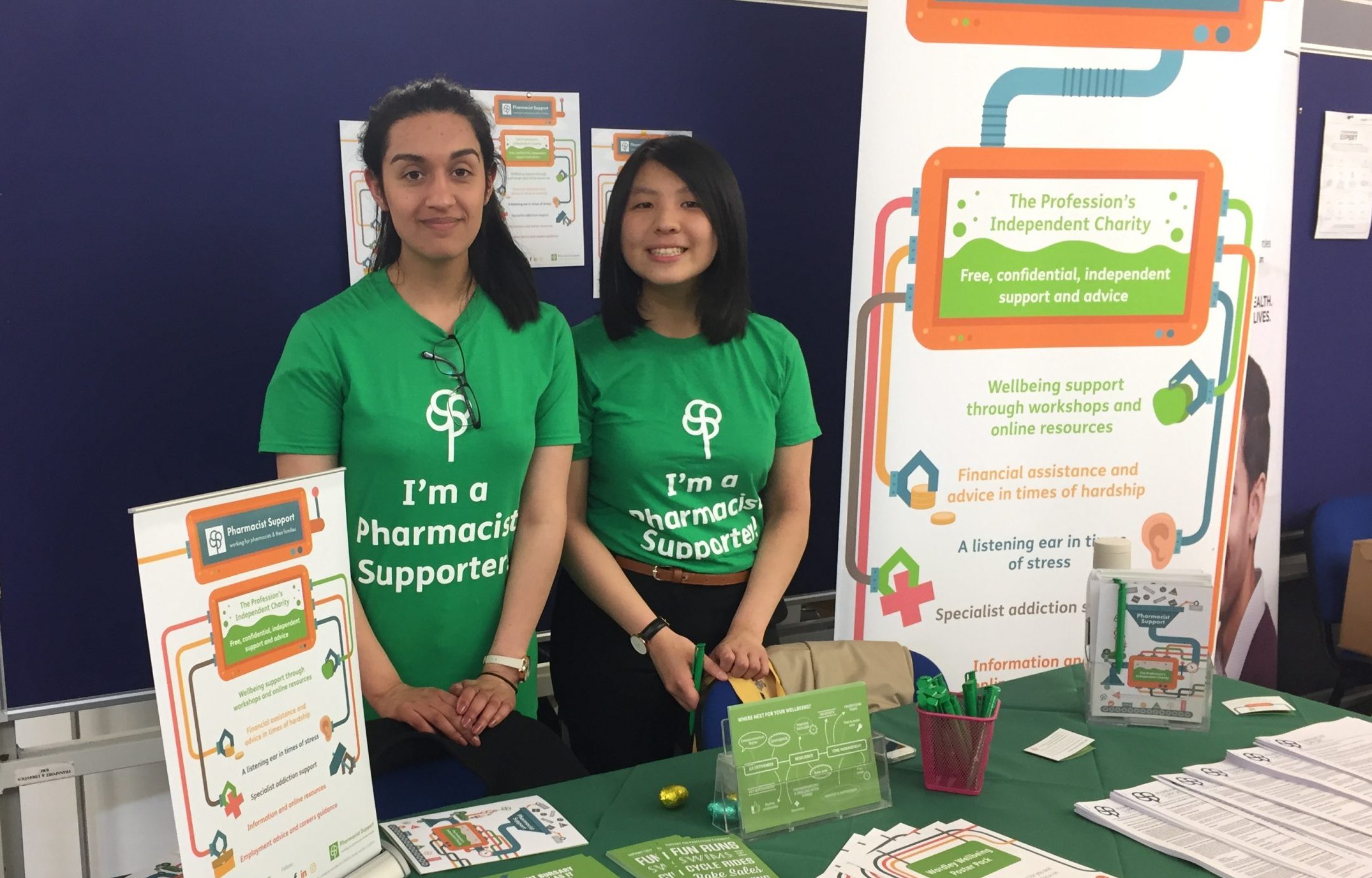Even if you consider yourself to be an introvert, or are comfortable in your own company, having good relationships with other people is important for your wellbeing. In fact, making connections is one of the 5 ways to wellbeing and has been proven to increase our sense of life satisfaction. On this page, we look at:
The science behind staying connected
It’s interesting to take a look at why we all have this intrinsic yearning to socialise and be close to others. Even the most introverted amongst us crave some form of social contact from time to time. But why is that?
As humans our need to communicate has shaped the way we have developed as a civilisation. Just think of all the inventions which have helped us to communicate; pen and paper, the alphabet, telegraph, the telephone, the Internet … the list goes on! This need to communicate has not only helped us to survive, but also thrive as a species. However, human communication goes even deeper.
Some research suggests that person-to-person contact triggers neurotransmitters in our nervous system which regulate our response to stress and anxiety. This can help us stay more resilient to stress factors in the longer term. Positive communication boosts levels of oxytocin. In turn this increases our levels of trust and happiness. Positive communication also lowers cortisol levels, which in turn lowers stress. In addition, when we socialise, our bodies release dopamine which gives us a little high and also kills pain.
In short, when we connect with others a cocktail of chemicals is released into our body which increases our short-term and long-term wellbeing. Social interaction helps in other ways too:
- Sharing experiences and support helps us strengthen our mental resilience
- Interaction can help us improve memory formation and protect the brain from neurodegenerative diseases
- Having regular social connection may help us to live longer
- Social participation can help us to understand social norms and develop healthy habits
- Having close social ties can make us feel happy, give us a sense of life satisfaction, and improve our overall wellbeing.
The impact of loneliness
Loneliness is defined as a state of mind linked to wanting human contact but feeling alone. People can be alone and not feel lonely, or they can have contact with people and still experience feelings of isolation. Loneliness is a complex emotion with many varying causes. For example, someone may feel lonely after bereavement or a relationship breakup, moving to a new area, and being physically isolated. There can also be internal factors for loneliness, such as suffering from depression, low self-esteem, social anxiety or simply naturally being an introvert.
Loneliness itself isn’t a mental health problem, but it can have a negative impact on your mental health. According to the mental health charity, Mind, some research suggests that loneliness is associated with an increased risk of certain mental health problems, including depression, anxiety, low self-esteem, sleep problems and increased stress. There can also be physical implications of loneliness, such as increased risk of developing high blood pressure, coronary heart disease, stroke or dementia.
It’s important to remember that feelings of loneliness are personal, so everyone’s experience of loneliness will be different.
Ways to stay connected with others
The covid-19 pandemic shone a light on how important maintaining social connections is. Whether it is a pandemic, mental illness, physical illness or something else which is causing you to feel lonely, there are steps we can take to maintain social connection. Remember to only do what you feel comfortable with and don’t put too much pressure on yourself.
Reach out to your existing support network
You may already know lots of people, but you don’t feel close to them. By reaching out to your social circle and opening up about how you’re feeling, you might be able to cultivate a stronger, closer relationship.
Try our self-study module on Exploring our Social Circles
Make new connections
You might be craving social interaction because your social circle is small right now. Or perhaps you know lots of people but aren’t getting the sort of social interaction you need so need to meet more, or different kinds of, people. Whatever the reason, it can feel daunting to ‘put yourself out there’. However, taking this first step could very well lead to finding a great friend or companion. You could:
- join a group related to your interests or hobbies (try searching the Internet for things like ‘cycling group/dog walking group/book club/religious group/etc. near me’)
- take a class to learn something new and meet people at the same time
- attend a local event (try looking in your local newspaper or searching online/on social media for events happening near you)
- volunteer (there are many charities across the country often looking for volunteers, including Pharmacist Support!)
Take a look at our suggestions on alternative ways to connect
Put in the effort
Friendships take time and effort, but it’s worth it. Like other relationships in our lives, we need to be proactive with our friendships and make an effort. Here are some tips to help cultivate your connections:
- Start the conversation with someone you’d like to know better by asking questions to encourage a dialogue
- Showing interest can go a long way in making someone feel comfortable, valued and listened to in your presence
- If you’re feeling a connection with someone or a group of people, take the initiative to invite them to do something such as getting a coffee
- Where possible, say “yes” to invitations to meet up … and remember to reciprocate the invitation!
- Even if you can’t meet up or go out often, keep the friendship going through messaging and/or a phone call every now and again. Letting someone know you’re thinking of them can help them to feel valued in the friendship and make it stronger
- Keep in mind that it takes time to feel a strong connection with someone so don’t expect results straight away. At the same time, coming on too strong may turn people away, so remember to take it slowly.
Helping others to stay connected
According to the Campaign to End Loneliness, nine million lonely people in the UK lack friendship and support. Even if you’re lucky enough to keep a busy home or social life, make sure to check in on those who might be spending a lot of time alone.
If you have an elderly relative, friend or neighbour, or family member or friend abroad, or you simply know someone living alone, make sure to check in on their needs, offer encouragement, or just talk. You might make a huge impact on their life just by saying hello.
Visit the Campaign to End Loneliness website
Talking therapy
If you are struggling and need someone to talk to, you may benefit from sort form of talking therapy. Talking therapies can help you to explore and understand a whole spectrum of emotional or psychological difficulties you might be facing, and come up with solutions to overcome them. At Pharmacist Support, we’re proud to offer two forms of talking therapy through our Counselling and Peer Support service.
Visit our page on Talking Therapy
This page was reviewed in March 2024.





